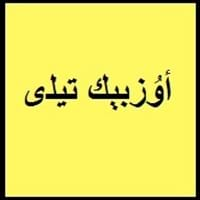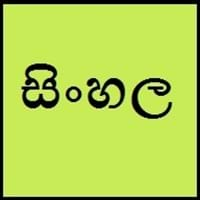Uzbek vs Sinhalese
Countries
Turkey, Uzbekistan
Sri Lanka
National Language
Afganistan, China, Kazakhstan, Kyrgyzstan, Russia, Tajikistan, Turkmenistan, Uzbekistan
Sri Lanka
Second Language
Not spoken in any of the countries
Sri Lanka
Speaking Continents
Middle East
Asia
Minority Language
Not spoken in any of the countries
Not spoken in any of the countries
Regulated By
Not Available
Hela Havula (හෙළ හවුල)
Interesting Facts
- Uzbek is officially written in the Latin script, but many people still use Cyrillic script.
- In Uzbek language, there are many loanwords from Russian, Arabic and Persian.
- In Sinhalese language, there are many loanwords from Dravidian languages mainly Tamil, Portuguese, Dutch and English.
- Sinhalese language has it own script/ writing system.
Similar To
Kazakh and Uyghur Languages
Maldivian Language
Derived From
Not Available
Sanskrit Language
Alphabets in
Uzbek-Alphabets.jpg#200
Sinhalese-Alphabets.jpg#200
Scripts
Arabic, Cyrillic, Latin
Sinhala alphabet
Writing Direction
Not Available
Left-To-Right, Horizontal
Thank You
Rakhmat
ඔබට ස්තුතියි (obaṭa stutiyi)
How Are You?
Qalay siz?
ඔබ කොහොමද (oba kohomada)
Good Night
Hayirli tun
සුභ රාත්රියක් (subha rātriyak)
Good Evening
Hayirli kech
සුබ සැන්දෑවක් (suba sændǣvak)
Good Afternoon
Hayirli kun
සුභ සන්ධ්යාවක් (subha sandhyāvak)
Good Morning
Hayirli tong
සුභ උදෑසනක් (subha udǣsanak)
Please
Iltimos
කරුණාකර (karuṇākara)
Sorry
Kechiring!
සමාවන්න (samāvanna)
I Love You
Sizni sevaman
මම ඔයාට ආදරෙයි (mama oyāṭa ādareyi)
Excuse Me
Iltimos! Menga qarang
මට සමාවෙන්න (maṭa samāvenna)
Where They Speak
Not Available
Sri Lanka
Dialect 2
Afghan
Not Available
Where They Speak
Not Available
Not Available
Dialect 3
Ferghana
Not Available
Where They Speak
Not Available
Not Available
Second Language Speakers
Not Available
Native Name
أۇزبېك ﺗﻴﻠی o'zbek tili ўзбек тили (o‘zbek tili)
සිංහල (sĩhala)
Alternative Names
Annamese, Ching, Gin, Jing, Kinh, Viet
Cingalese, Singhala, Singhalese, Sinhala
French Name
ouszbek
singhalais
German Name
Usbekisch
Singhalesisch
Pronunciation
Not Available
Not Available
Ethnicity
Uzbek
Sinhalese people
Origin
9th–12th centuries AD
3
Language Family
Turkic Family
Indo-European Family
Subgroup
Turkic
Indo-Iranian
Branch
Southestern(Chagatai)
Indic
Early Forms
Chagatay
Sinhalese Prakrit
Standard Forms
Uzbek
Modern Sinhalese
Signed Forms
Not Available
Not Available
Scope
Macrolanguage
Individual
ISO 639 6
Not Available
Not Available
Glottocode
uzbe1247
sinh1246
Linguasphere
No data available
No data available
Language Type
Living
Living
Language Linguistic Typology
Not Available
Subject-Object-Verb
Language Morphological Typology
Not Available
Fusional
Uzbek and Sinhalese Language History
Comparison of Uzbek vs Sinhalese language history gives us differences between origin of Uzbek and Sinhalese language. History of Uzbek language states that this language originated in 9th–12th centuries AD whereas history of Sinhalese language states that this language originated in 3. Family of the language also forms a part of history of that language. More on language families of these languages can be found out on Uzbek and Sinhalese Language History.
Uzbek and Sinhalese Greetings
People around the world use different languages to interact with each other. Even if we cannot communicate fluently in any language, it will always be beneficial to know about some of the common greetings or phrases from that language. This is where Uzbek and Sinhalese greetings helps you to understand basic phrases in Uzbek and Sinhalese language. Uzbek word for "Hello" is Salom or Sinhalese word for "Thank You" is ඔබට ස්තුතියි (obaṭa stutiyi). Find more of such common Uzbek Greetings and Sinhalese Greetings. These greetings will help you to be more confident when conversing with natives that speak these languages.
Uzbek vs Sinhalese Difficulty
The Uzbek vs Sinhalese difficulty level basically depends on the number of Uzbek Alphabets and Sinhalese Alphabets. Also the number of vowels and consonants in the language plays an important role in deciding the difficulty level of that language. The important points to be considered when we compare Uzbek and Sinhalese are the origin, speaking countries, language family, different greetings, speaking population of these languages. Want to know in Uzbek and Sinhalese, which language is harder to learn? Time required to learn Uzbek is 44 weeks while to learn Sinhalese time required is 44 weeks.





